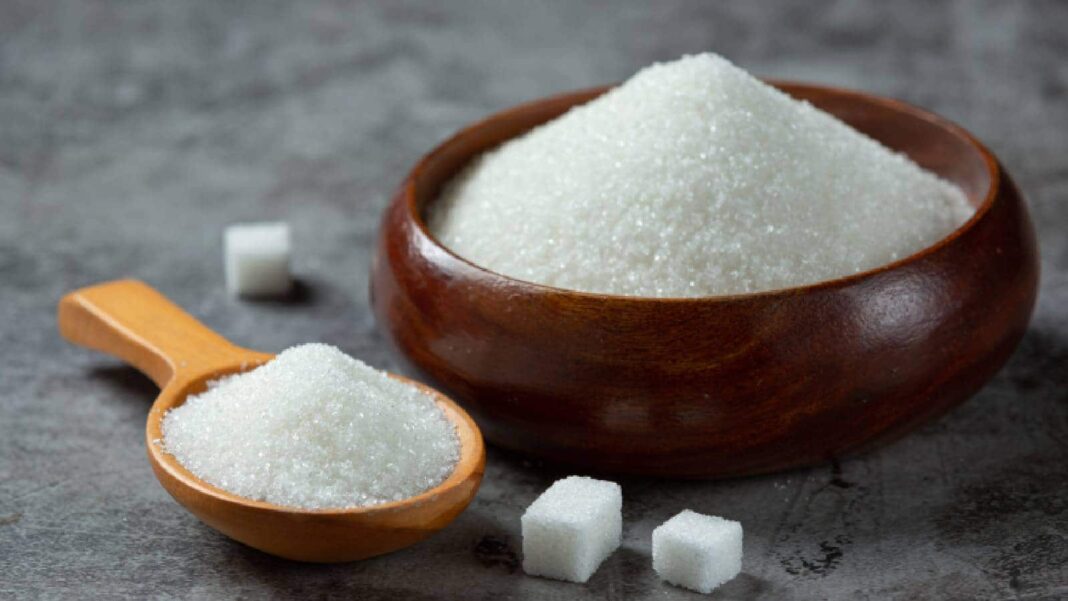A recent study suggests that xylitol can alter thebody’s clotting abilities and lead to stroke or heart attack. Read on to know more
Xylitol is a natural sugar alcohol that is found in plants. While it tastes like sugar, it has fewer calories and is often touted to be a healthier option for sugar, especially if you are on your weight-loss journey. While it is believed that it is healthier than refined sugar, some likely side effects of Xylitol have come to the forefront.
A recent study, published in the European Heart Journal, suggests that Xylitol might be associated with cardiovascular risk. It can hamper our bodies’ clotting abilities, and hence, lead to stroke or heart attack. Read on to know more.
What is Xylitol?
Xylitol, also known as sugar alcohol, is found in many fruits and vegetables in small quantities. Our bodies also produce Xylitol in small quantities during metabolism. A study published in Bioresource Technology, suggests that Xylitol can be processed from the birch tree as well as from a plant fibre called Xylan. It is widely used in sugar-free products such as chewing gums and candies, mints, mouthwash, toothpaste, as well as medications for kids. While sugar has 4 calories per gram, Xylitol has 2.4 calories, making it perfect for weight-loss regimes.
What the study says
In the study, blood samples of 3,000 people were analysed for heart disease for three years. Volunteers were given a drink, sweetened with 30 grams of xylitol daily. It was seen that people who had a high level of Xylitol in their blood experienced double the risk of heart attack, stroke, and even death. The research was also conducted in vivo, inside a living body, as well as rodent experiments, that proved that Xylitol has an impact on cardiovascular function and that it can hamper platelet function. It was observed that Xylitol might increase the stickiness function of platelets, and this may lead to clotting of blood in the brain or heart, which can lead to a heart attack or a stroke. While platelet function became normal the next day for those who didn’t have a regular intake of xylitol, for those who did, the risk continued.
However, the research also shows that xylitol present in toothpaste and mouthwash did not have the same effect as the quantity was much lesser, and the substance was not consumed.
Other side effects of Xylitol
Besides what the study proves, there are some other side effects of consuming Xylitol. Overconsumption of Xylitol can lead to bloating, gas as well as diarrhoea. A study, published in the International Journal of Dentistry, suggests that xylitol can suck out the water from our intestines, and also get fermented by the bacteria present in our gut.

Should you stop consuming xylitol?
The key is moderation, says the senior author of the study physician-scientist Stanley Hazen, MD, PhD. He says that while sugar and honey might be worse for people who diabetes, it is important to not go overboard in consuming products that contain xylitol. He adds that it is rather advisable to have foods that have natural sources of sugar, such as fruits. These have vitamins and minerals as well, which will make you healthier.
Dr Hazen’s team found similar studies stating similar side effects of erythritol, which is another commonly used sugar alcohol.

How to check if something contains xylitol?
It is not so easy to check if a product contains xylitol or not. You need to look at the fine print to determine this. It might be listed in the ‘other ingredients’ or ‘supplement facts’ on the label. At times, it is also listed as ‘sugar alcohol’. However, sugar-free gum, toothpaste, and mouthwash contain xylitol for sure. According to the US Food and Drug Administration guidelines, if a product is claiming to be sugar-free, then the sugar-alcohol content needs to be on the label. There are other sugar alcohols as well such as Erythritol, Sorbitol, Maltitol, Mannitol and Isomalt.
Precautions for using xylitol
High doses of xylitol are extremely unsafe and must be avoided. It is relatively safe when it is mixed in water and rinsed. However, the effects of xylitol on pregnant and lactating women still need to be studied further and must be avoided. Also, xylitol is fatal for dogs, and, hence, must be kept away from your pets.
Select Topics of your interest and let us customize your feed.








